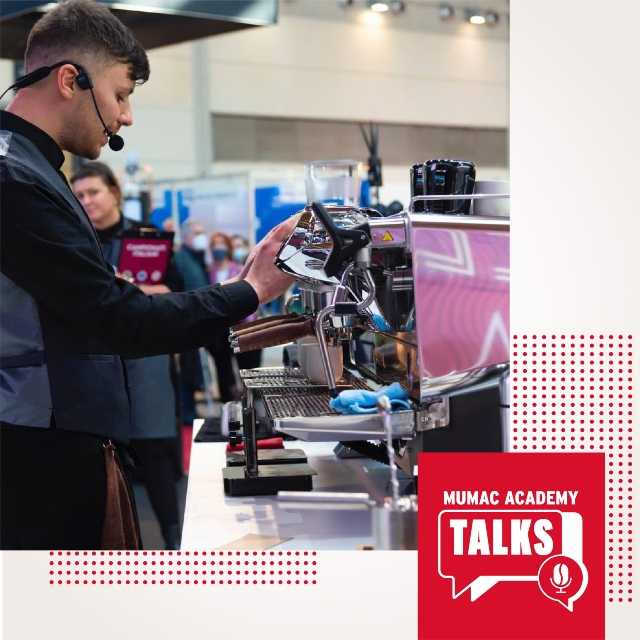MILAN – Matteo Pavoni is a 29-year-old barista and coffee roaster from Milan, owner of Peacocks Coffee and current Italian Barista Champion. After obtaining his diploma as a technical surveyor in Italy, he decided to move to London where coffee became both his passion and his profession. Here he gained increasing experience and skills by working in various companies as a barista, trainer and roaster. In 2018, Matteo decided to return to Italy to start Peacocks Coffee together with his brother Riccardo.
In 2022, he won the Italian Barista Championship and represented Italy at the World Championships, reaching the semi-finals and finishing 11th in the world rankings. He stars in the ninth episode of MUMAC Academy Talks, the format devoted to coffee professionals’ stories.
You have achieved an impressive goal: Italian Barista Champion 2022. What led you to take part in competitions?
“My first real competition experience dates back to the beginning of my journey in the coffee world: without my knowledge, my boss entered me in a company barista competition and from that moment on, I was immediately hooked on this format.
Competitions give me an opportunity not only to showcase and present exceptional coffees, but also to do so by illustrating a subject that I consider important, such as degassing coffee, which was addressed this year.”
Can you give us a very brief explanation of the main focus of the competition you brought to the world championship?
“For the World Barista Championships in Melbourne, I took a closer look at the research I had already presented at the Italian nationals: coffee degassing. Thanks to support from Christopher Hendon and the University of Oregon, I was able to test my coffee with an instrument that identifies the volatile components and monitors how they evolve during the various degassing stages.”
Pavoni, with regard to coffee degassing and espresso extraction, how important do you think it is to choose the right grinder-doser?
“I consider the choice of grinder-doser to be fundamental in any coffee processing context. It is important to have a product that provides the most uniform grind possible and that the barista recognises the impact of post-grinding degassing. This is because, once ground, coffee quickly loses its volatile components, affecting the quality in the cup.”
Pavoni, in your view what role can technology play in a grinder-doser to offer high quality in the cup?
“Working with different types of coffee or even just one, baristas need to calibrate the espresso recipe with dose in, extraction time and dose out (among other variables). With technology like PGS (Perfect Grinding System), for example, the grinder-doser ‘talks’ to the espresso machine via Bluetooth, automatically correcting any errors in grind size in real time. Extraction quality can therefore be maintained by avoiding continuous operation of the grinder. This allows us to ensure an efficient workflow and optimal service quality, while reducing waste.”
Finally, how important is it to have the right training in order to properly select and use an espresso machine and grinder-doser?
“I firmly believe that training is the foundation of every job. In the coffee world, building a solid foundation in both theory and practice allows us to quickly understand how equipment works and how to handle it in order to optimally extract the coffees we work with.”
About MUMAC Academy
MUMAC Academy is Gruppo Cimbali’s Coffee Machine Academy, an international training centre for professionals and coffee lovers. Headquartered in Binasco (Milan), MUMAC Academy has established eight branches in Barcelona, Lisbon, London, Paris, Porto, Rome, Seville and Vienna.
There are also ten LABs, training centres twinned at the Gruppo Cimbali distributor sites. A benchmark for the promotion of coffee culture since its foundation in 2014, MUMAC Academy has helped to train more than 10,500 professionals with over 1,300 days of in-person and online courses.
MUMAC Academy is a certified Sca Premier Training Campus and Iiac Academy, one of the most prestigious venues for coffee tasting and knowledge. Its training programme, taught by internationally acclaimed instructors, is divided into two categories: courses on coffee with Sca, Lags and Iiac modules, and courses on coffee machine technologies for the transformation of the product, on which the Academy carries out research in collaboration with various universities.


















